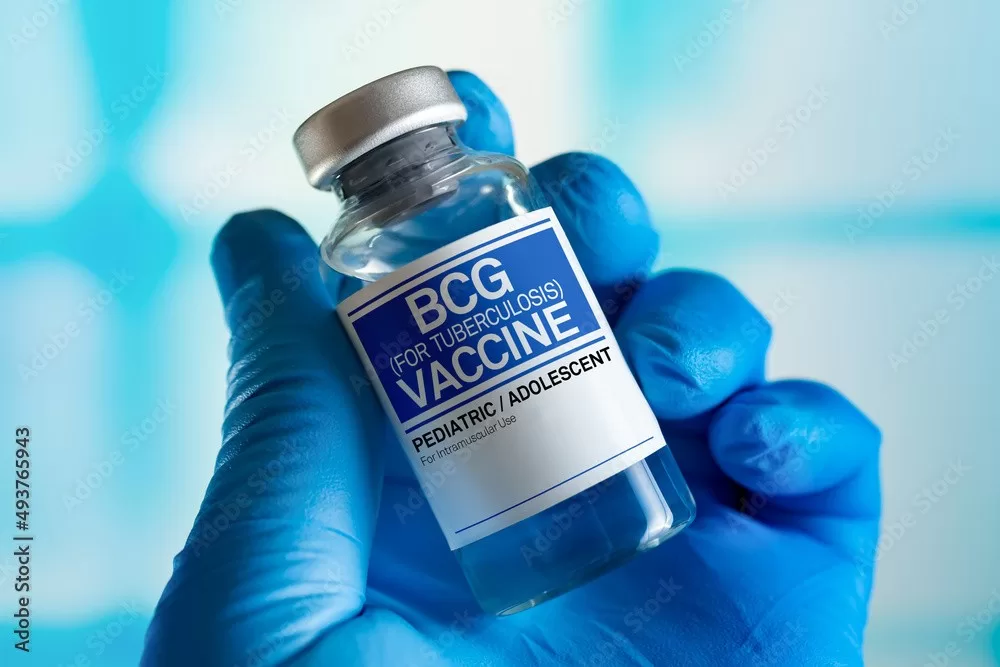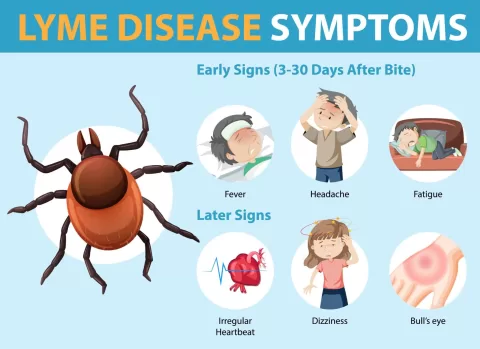The BCG vaccine for tuberculosis has been a cornerstone in the fight against this infectious disease since its introduction in 1921. As the only vaccine currently available for TB, it plays a vital role in tuberculosis vaccination efforts, especially in regions where the disease is endemic. Research into BCG vaccine efficacy reveals its effectiveness in preventing severe forms of TB in children, yet its protection against adult pulmonary TB remains inconsistent. With the resurgence of tuberculosis globally, understanding the implications of the BCG vaccine and exploring innovative solutions, such as mRNA vaccines for TB, is crucial for public health and TB prevention. This ongoing evolution in vaccination strategies aims to enhance immunity and curb the impact of this persistent public health challenge.
The Bacillus Calmette-Guérin (BCG) vaccination serves as a critical tool in combating tuberculosis, a disease that has plagued humanity for centuries. As we delve deeper into the dynamics of TB prevention, alternative terms such as TB immunization and tuberculosis prophylaxis emerge, emphasizing the importance of vaccinations in controlling outbreaks. The BCG vaccine’s role in public health initiatives cannot be overstated, particularly in high-risk regions where the disease is prevalent. Furthermore, the exploration of cutting-edge vaccine technologies, including mRNA platforms, is set to revolutionize tuberculosis vaccination strategies. Understanding the various dimensions of tuberculosis vaccination can pave the way for more effective solutions and better health outcomes globally.
Understanding the BCG Vaccine Efficacy
The Bacillus Calmette-Guérin (BCG) vaccine’s efficacy has been a focal point of research since its inception. While it is effective in preventing severe forms of tuberculosis (TB) in children, its efficacy against adult pulmonary TB is much less reliable. Studies have shown that the vaccine can significantly reduce the risk of severe forms of the disease, such as TB meningitis and disseminated TB in young children, who are among the most vulnerable. However, in adults, the variation in efficacy has led to debates on its universal application, especially in countries with low TB incidence.
In regions where TB is endemic, the BCG vaccine remains critical for public health. Despite its limitations, the vaccine is often administered shortly after birth to provide immediate protection to infants. This is particularly important in areas with high rates of TB transmission. Furthermore, ongoing studies aim to fine-tune the understanding of the BCG vaccine’s efficacy, potentially leading to better vaccination strategies that could include booster doses or combination therapies with emerging mRNA vaccines.
The Role of mRNA Vaccines in Tuberculosis Prevention
Recent advances in vaccine technology have introduced mRNA vaccines as a promising alternative in the fight against tuberculosis. These vaccines leverage the same technology that proved effective for COVID-19 vaccines, indicating a potential for rapid development and deployment in response to infectious diseases. Early studies suggest that mRNA vaccines may elicit a stronger immune response compared to traditional vaccines, including the BCG, thereby offering enhanced protection against tuberculosis.
Research is currently focused on evaluating the safety and efficacy of mRNA vaccines for TB in preclinical trials. Scientists are optimistic that these vaccines could not only improve immunity but also provide long-lasting protection against TB. The potential for mRNA technology to create tailored vaccines that target specific strains of TB is particularly exciting, as it could revolutionize tuberculosis vaccination strategies and significantly reduce the global burden of this disease.
Public Health Strategies for Preventing Tuberculosis
Public health initiatives play a crucial role in preventing tuberculosis, especially in regions experiencing a resurgence of the disease. Effective TB vaccination strategies, including the use of the BCG vaccine and emerging mRNA candidates, are vital in combatting outbreaks. Public health authorities must prioritize vaccination programs, especially in high-risk populations and areas with increasing TB incidence. In addition to vaccination, comprehensive screening and treatment strategies are essential components of a robust public health response to tuberculosis.
Moreover, addressing social determinants of health, such as housing, nutrition, and access to healthcare, is critical in the fight against TB. Education and community engagement are also necessary to raise awareness about tuberculosis transmission and prevention methods. By combining vaccination efforts with broader public health strategies, we can significantly mitigate the impact of TB and strive towards its elimination as a public health threat.
Emerging Challenges in Tuberculosis Vaccination
The emergence of new strains of tuberculosis presents significant challenges for vaccination efforts worldwide. With some strains exhibiting resistance to traditional treatments, public health experts are concerned about the efficacy of existing vaccines, including the BCG. This development has prompted researchers to explore alternative vaccination strategies and combination therapies that could bolster immunity against these evolving strains.
Additionally, the global burden of tuberculosis remains a pressing concern, particularly in low- and middle-income countries. These regions often lack access to effective healthcare resources, making them particularly vulnerable to outbreaks. To address these challenges, innovative approaches to vaccine development, including the investigation of mRNA technology, must be prioritized to create more effective and adaptable vaccination options that can respond to the dynamic nature of tuberculosis.
The Future of Tuberculosis Vaccination and Research
Looking ahead, the future of tuberculosis vaccination is increasingly promising, particularly with the advancements in vaccine technology. Researchers are actively exploring new methods to enhance the efficacy of vaccines, with mRNA vaccines being at the forefront of this innovation. These developments not only aim to improve the immune response against TB but also seek to provide lasting protection, which has been a significant limitation of the current BCG vaccine.
In conclusion, a multi-faceted approach to tuberculosis vaccination is essential for future success. This includes ongoing research into new vaccine candidates, effective public health policies, and strategies that ensure equitable access to vaccination. As the global community continues to face the challenges posed by TB, it is imperative that we invest in innovative solutions and collaborative efforts to protect vulnerable populations and ultimately reduce the burden of this infectious disease.
Frequently Asked Questions
What is the efficacy of the BCG vaccine for tuberculosis?
The BCG vaccine shows variable efficacy in preventing tuberculosis (TB), particularly effective against severe forms of TB in children but less reliable in adults. While it significantly reduces the risk of severe disease in children, its effectiveness against adult pulmonary TB is inconsistent, leading to limited use in low-risk countries.
How does the BCG vaccine for tuberculosis compare to mRNA vaccines?
The BCG vaccine for tuberculosis is a traditional live attenuated vaccine, while emerging mRNA vaccines aim to enhance immunity against TB with potentially greater effectiveness. Current research explores how mRNA technology can complement the BCG vaccine, possibly providing more robust protection against TB.
What role does the BCG vaccine play in public health strategies for preventing tuberculosis?
The BCG vaccine is a cornerstone of public health strategies for tuberculosis prevention, particularly in high-risk areas. Its use helps reduce severe TB cases in children; however, public health efforts are increasingly focused on new vaccine developments and strategies to combat rising TB infection rates.
Is the BCG vaccine sufficient for preventing tuberculosis in adults?
The BCG vaccine alone is not sufficient for preventing tuberculosis in adults, as its efficacy is limited. In lower-risk countries, it is typically recommended only for high-risk individuals, while ongoing research seeks to develop more effective vaccines and strategies to bolster adult immunity against TB.
What are the future prospects for tuberculosis vaccination beyond the BCG vaccine?
Future prospects for tuberculosis vaccination include the development of innovative mRNA vaccines that aim to provide enhanced and long-lasting immunity against TB. Research is also exploring combination strategies to boost the BCG vaccine’s effectiveness, addressing the need for improved TB prevention methods globally.
| Key Points | Details |
|---|---|
| Introduction | The BCG vaccine was first introduced in 1921 and is essential for TB prevention in high-risk areas. |
| Overview | BCG is a live attenuated vaccine derived from *Mycobacterium bovis*, primarily given to infants in TB prevalent regions. |
| Efficacy | Effective against severe TB in children but less reliable for adult TB; recommended for high-risk groups in low-risk countries. |
| Recent Developments | Research into mRNA vaccines shows promise for improved TB immunity and long-term protection. |
| Public Health Context | Resurgence of TB in certain regions highlights the need for better vaccination strategies and new vaccine development. |
Summary
The BCG Vaccine for Tuberculosis has played a pivotal role in preventing severe forms of TB since its introduction in 1921. However, its limitations, especially in protecting adults, underscore the necessity for new vaccine developments. Recent advancements, particularly in mRNA technology, hold great promise for enhancing immunity against TB, potentially leading to more effective vaccination strategies. As tuberculosis cases fluctuate globally, ongoing research and public health initiatives will be crucial in ensuring better health outcomes and controlling the disease.
The content provided on this blog (e.g., symptom descriptions, health tips, or general advice) is for informational purposes only and is not a substitute for professional medical advice, diagnosis, or treatment. Always seek the guidance of your physician or other qualified healthcare provider with any questions you may have regarding a medical condition. Never disregard professional medical advice or delay seeking it because of something you have read on this website. If you believe you may have a medical emergency, call your doctor or emergency services immediately. Reliance on any information provided by this blog is solely at your own risk.








